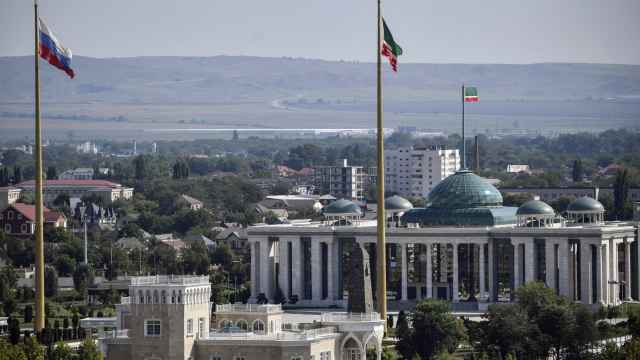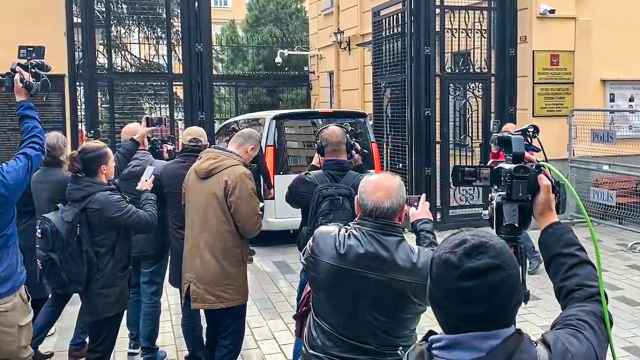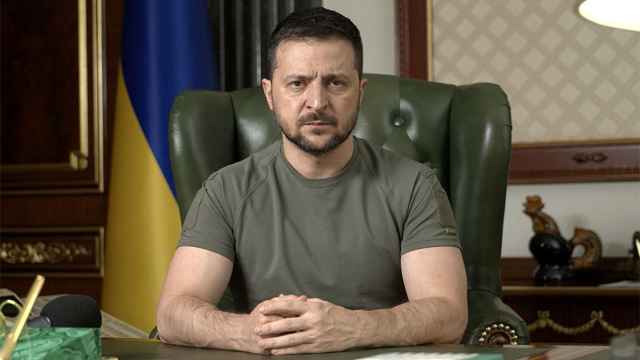Georgy Arbatov — scholar, founder of the U.S.A. and Canada Institute and adviser to Soviet leaders from Leonid Brezhnev to Mikhail Gorbachev — died on Oct. 1. Shortly thereafter, I received a letter from La Trobe University of Australia requesting that I share my reflections on the contribution made by British academic Mary Kaldor to Gorbachev’s “new thinking.” That led me to reminisce about the years I worked at the U.S.A. and Canada Institute under Arbatov.
Kaldor, now a professor at the London School of Economics, founded the European Nuclear Disarmament movement with British historian E.P. Thompson in 1980. When the detente of the late 1970s was replaced by a new round of Cold War tensions in the early and mid-1980s, anti-war movements sprouted up like mushrooms in the United States and Western Europe. Despite the carnival atmosphere of their mass rallies, most of these movements were purely technocratic in nature, seeking to resolve very specific problems such as prohibiting the neutron bomb, reducing medium-range missiles in Europe and stopping U.S. President Ronald Reagan’s pet project, the Strategic Defense Initiative. Several of them, such as the British Campaign for Nuclear Disarmament, offered the Soviet Union and the United States a detailed and well-thought- out plan for reducing nuclear weapons.
On both sides of the Iron Curtain, the arms race produced ever greater numbers of weapons in a self-perpetuating cycle that produced jobs and profits for their respective military-industrial complexes but did little to ensure military superiority. The arms race went far beyond the objective boundaries of deterrence and set the “bloodthirsty” Soviet Union in an adversarial role against the “aggressive” West as a means for manipulating the people of both societies. According to Kaldor and Thompson, the way to end the Cold War was not simply through arms reductions, but by reducing the influence of the military-industrial complexes of the East and the West. Needless to say, Soviet and Western hawks both considered Kaldor and Thompson to be radicals.
Arbatov lived according to these same principles long before the European Nuclear Disarmament movement was organized. I began working at the U.S.A. and Canada Institute in fall 1979, just as tensions were escalating dangerously in U.S.-Soviet relations. Western media portrayed Arbatov as a Kremlin hawk, but his Russian colleagues understood that when Arbatov criticized the Strategic Defense Initiative, he was really attacking the Soviet military elite who cynically manipulated the argument into justify investing billions of dollars into building new Soviet missiles and tanks. Arbatov also struggled against the Soviet leadership’s ideological approach that used any escalation of tensions in U.S.-Soviet relations as an excuse to further tighten the screws internally.
When Arbatov would occasionally ask me to write analytical notes on various aspects of U.S.-Soviet relations, I would draw on his own thinking and translate from English into Russian the parts of Kaldor’s and Thompson’s ideas that were closest to my own understanding. Arbatov passed them up the chain of command until those ideas became a part of Gorbachev’s political philosophy. Considering that Kaldor’s and Thompson’s works were banned in the Soviet Union during the early days of Gorbachev’s reforms, it turns out that Arbatov was essentially engaged in “subversive activities.”
This is one little story about how the Cold War ended and how Russia became a democratic state.
Alexei Pankin is the editor of WAN-IFRA-GIPP Magazine for publishing business professionals.
A Message from The Moscow Times:
Dear readers,
We are facing unprecedented challenges. Russia's Prosecutor General's Office has designated The Moscow Times as an "undesirable" organization, criminalizing our work and putting our staff at risk of prosecution. This follows our earlier unjust labeling as a "foreign agent."
These actions are direct attempts to silence independent journalism in Russia. The authorities claim our work "discredits the decisions of the Russian leadership." We see things differently: we strive to provide accurate, unbiased reporting on Russia.
We, the journalists of The Moscow Times, refuse to be silenced. But to continue our work, we need your help.
Your support, no matter how small, makes a world of difference. If you can, please support us monthly starting from just $2. It's quick to set up, and every contribution makes a significant impact.
By supporting The Moscow Times, you're defending open, independent journalism in the face of repression. Thank you for standing with us.
Remind me later.





